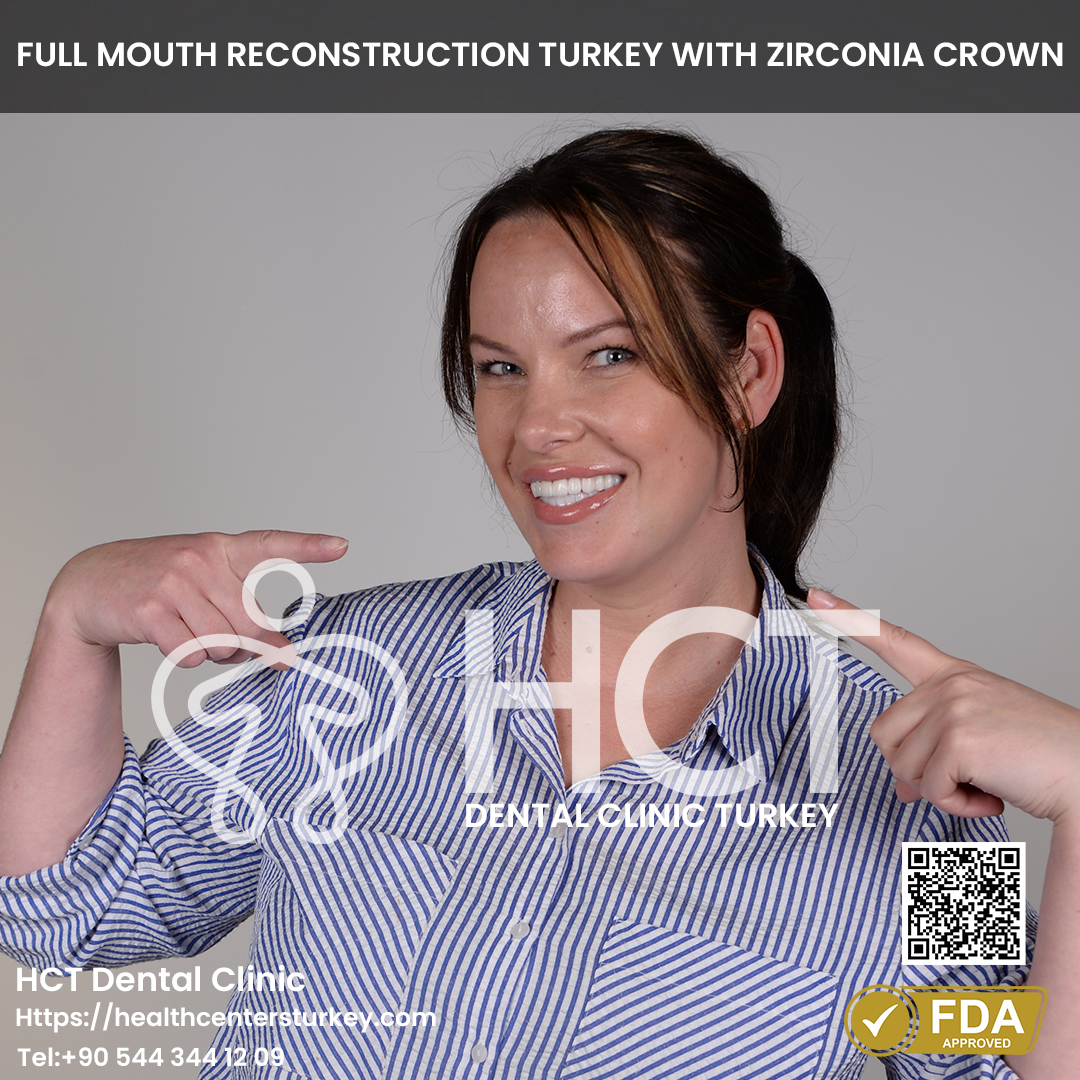Unveil Your Brightest Smile with Expert Dental Care in Turkey
Unveil Your Brightest Smile with Expert Dental Care in Turkey
Blog Article
Elevate Your Teeth through Modern Dental Practices in Turkey
Dental implants have turn into a well-liked resolution for those trying to replace missing teeth. Understanding how these implants can have an effect on adjacent teeth is important for anybody considering this process, in addition to for dentists and specialists concerned in dental care.

One significant side is that dental implants are designed to be anchored into the jawbone, which suggests they are impartial of adjacent teeth. Unlike dental bridges, which frequently require the alteration of neighboring teeth, implants can fill the gap with out compromising the health or structure of those surrounding teeth.
This independence helps preserve the integrity of adjacent teeth. When a tooth is lost, there is usually a natural tendency for neighboring teeth to tilt or shift into the empty house. Such movement can result in misalignment, which may have an effect on chunk and general oral health. By placing an implant, you successfully prevent this potential shift, promoting higher alignment in the long term.
Why Turkey is a Top Destination for Dental Treatments
Additionally, dental implants help keep bone density in the jaw. A natural tooth root supplies stimulation to the surrounding bone, maintaining it healthy and powerful. When a tooth is missing, the bone can begin to deteriorate because of lack of stimulation. With a dental implant mimicking a natural root, bone loss can be minimized, which not directly benefits adjacent teeth by preserving the general structure of the dental arch.
While dental implants are advantageous, improper placement can influence neighboring teeth. If an implant is positioned too close to a different tooth, it could exert undue strain on that tooth, leading to discomfort or potential injury. Proper planning and imaging techniques are important for avoiding such issues.
Advanced Oral Health Techniques to Suit Your Needs
Moreover, sustaining good oral hygiene is crucial after receiving an implant. If not correctly cleaned, surrounding teeth may turn into vulnerable to dental points similar to decay or gum disease. This underscores the significance of diligent oral care following the procedure to make sure each implants and adjacent teeth remain wholesome.
Regular dental check-ups are also very important for monitoring the health of surrounding teeth. Dentists can establish any shifts or potential problems early, allowing for timely interventions. This proactive strategy ensures that each the implant and adjacent teeth can coexist without problems.
Comprehensive Oral Health Packages for Every Budget
Another consideration is the impression of implants on bite force. When a single tooth is missing, the load of chewing may shift to adjacent teeth, probably resulting in put on or strain. Implants restore correct bite dynamics by redistributing forces in the mouth, which may protect surrounding teeth from undue stress.
Some patients might raise considerations about the appearance of dental implants. Well-placed implants can blend seamlessly with current teeth, improving general aesthetics. In distinction, failing to replace a missing tooth can result in aesthetic issues, together with collapsing of facial structure and adjustments in smile dynamics.
It's also value discussing the psychological features of dental health. Experiencing tooth loss can adversely affect one’s vanity and willingness to have interaction socially. By restoring your smile with implants, you probably can positively influence not solely your oral health but also your emotional well-being.
Long-term success of dental implants typically hinges on numerous components, together with the patient's health, maintenance habits, and the quality of the initial procedure. If adjacent teeth are healthy and correctly cared for, the likelihood is that they may continue to thrive alongside the implants.
Extensive Oral Care for Your Perfect Smile
In conclusion, dental implants play a crucial position in not simply restoring particular person smiles, however in preserving the health and structure of adjacent teeth. By preventing shifting, maintaining bone density, and redistributing chew forces, implants can ensure that surrounding teeth stay in optimum condition. Proper placement, hygiene, and common dental visits can further enhance the benefits of dental implants, leading to a healthier, more confident smile for years to return.
- Dental implants might help keep the alignment of adjacent teeth by offering a secure anchor, stopping adjacent teeth from shifting into the hole left by a missing tooth.
- The presence of an implant could stimulate bone progress in the jaw, helping to protect the general structure and integrity of the adjacent teeth.
- Unlike conventional bridges, implants do not require alteration of surrounding teeth, thus preserving their strength and anatomy.
- Implants can enhance the distribution of bite forces evenly across the dental arch, reducing the stress on neighboring teeth throughout chewing.
- A well-integrated dental implant can decrease the chance of bone loss within the space surrounding adjacent teeth, contributing to their long-term health and stability.
- The aesthetics of adjacent teeth could be improved due to the help offered by implants, which may lead to better total beauty outcomes.
- With correct placement, dental implants can prevent gum recession around adjacent teeth by maintaining adequate dental architecture.
- Implants may help mitigate the risks of periodontal disease in close by teeth by selling healthy gum tissue and providing a washable floor.
- Long-term success of dental implants can lead to improved oral hygiene routines, which in turn benefits the health of surrounding teeth.
- The improved functional ability of an implant can encourage patients to chew extra successfully, thus increasing saliva production and aiding within the safety of adjacent dental tissues.undefinedHow do dental implants affect adjacent teeth?
What are dental implants and how do they work together with adjacent teeth?undefinedDental implants are synthetic tooth roots which may be surgically positioned into the jawbone. They present a steady foundation for replacement teeth while guaranteeing minimal disruption to adjacent teeth, preserving their integrity and alignment. Latest Advances in Dental Implants in Turkey.
Embrace Your Oral Health Improvement in Turkey
Can dental implants trigger problems for close by natural teeth?undefinedGenerally, dental implants do not harm adjacent natural teeth. However, if the implant just isn't placed correctly or if there’s insufficient oral hygiene, it might lead to issues similar to adjacent tooth decay or gum disease.

Will getting a dental implant change the way my adjacent teeth feel?undefinedMost patients report no change in the sensation of adjacent teeth after implant placement. However, it may take some time to regulate to the presence of the implant, much like how one could adapt to different dental restorations.
Can dental implants assist preserve the health of adjacent teeth?undefinedYes, dental implants may help preserve the health of adjacent teeth by stopping bone loss that may occur after tooth loss. This preservation supports the alignment of nearby teeth, reducing the chance of shifting or misalignment.
Enhance Your Dental Aesthetics with Affordable Options in Turkey
Do I want to switch adjacent teeth when getting an implant?undefinedTypically, adjacent teeth do not need alteration when placing an implant. This is one of the benefits Visit Your URL of dental implants over traditional bridges, which often require reshaping adjacent teeth for assist.
How does the therapeutic means of an implant have an effect on nearby teeth?undefinedThe therapeutic process includes osseointegration, the place the implant fuses with the jawbone. During this time, adjacent teeth stay unaffected and retain their operate, although it’s important to observe post-operative care suggestions. Reasonably Priced Teeth Whitening at Top Clinics in Turkey.
Discover the Newest Dental Technologies Available in Turkey
Can dental implants lead to bone loss round adjacent teeth?undefinedIf dental implants are placed properly and cared for adequately, they should not result in bone loss around adjacent teeth. In truth, they might help stimulate bone growth, combating the natural bone loss that usually follows tooth extraction.
What precautions should I take to protect adjacent teeth after getting an implant?undefinedRoutine dental hygiene, together with brushing and flossing, along with common dental check-ups, is crucial. Avoiding hard meals and following your dentist’s aftercare instructions may even shield each the implant and adjacent teeth.
Is it widespread for adjacent teeth to shift after an implant is placed?undefinedIt's not typical for adjacent teeth to shift after an implant placement, especially when the implant is positioned correctly and maintained correctly. If there’s any movement, it a knockout post could be because of different underlying issues that must be evaluated by a dental professional. Report this page